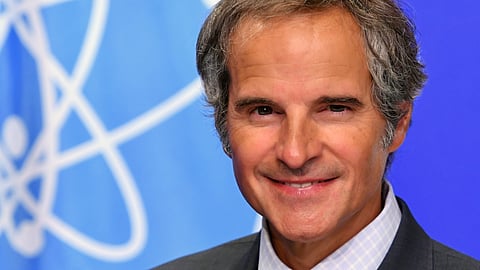

Iran officially ended all cooperation with the International Atomic Energy Agency (IAEA) on Thursday, following the signing into law of a bill passed unanimously by the Iranian parliament, the Majles. The bill was rapidly approved by the Guardian Council and signed by President Massoud Pezeshkian, making it legally binding.
The law halts all installation of IAEA surveillance cameras at Iranian nuclear facilities, prohibits agency inspections at these sites, and suspends the submission of reports and notifications to the IAEA.
Under the legislation, any future cooperation with the IAEA would require guarantees for the safety and security of Iran’s nuclear infrastructure and personnel. In addition, any inspection activities would require approval by Iran’s Supreme National Security Council, led by the President but ultimately accountable to Supreme Leader Ayatollah Ali Khamenei.
Iranian officials have previously accused the IAEA of bias and collusion with Western intelligence services and Israel. The Iranian government has presented what it claims are documents obtained via intelligence operations showing the agency shared sensitive information about Iran’s nuclear program with Israel. Citing these claims, Parliamentary Speaker Mohammad Bagher Ghalibaf called the IAEA a "political tool."
Despite suspending cooperation with the IAEA, the law affirms Iran's intention to continue its civilian nuclear program. The U.S. cited this program as a justification for backing Israeli airstrikes and carrying out its own bombing raids on three Iranian nuclear sites last weekend.
One key consequence of the attacks has been the disappearance of roughly 409 kilograms (901 pounds) of highly enriched uranium, which is believed to have been evacuated from the Fordow enrichment site ahead of the U.S. airstrikes.
The deterioration of Iran’s relationship with the IAEA appears to be causing international concern. On Wednesday, before the law was officially enacted, Russian Foreign Minister Sergey Lavrov voiced support for Iran's decision, saying, “I completely understand if Iran wants to suspend all cooperation with the International Atomic Energy Agency.” Lavrov also criticized the agency for failing to ensure that confidential information would not be leaked to third parties.